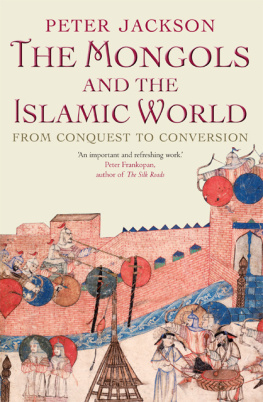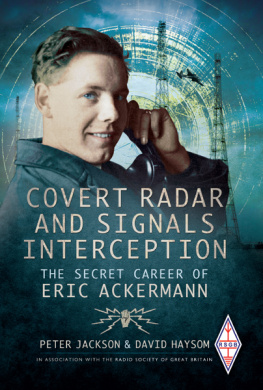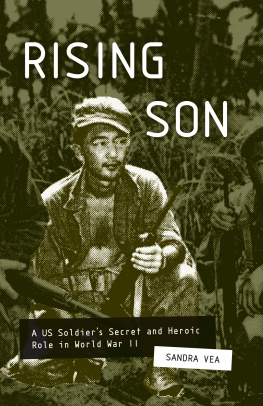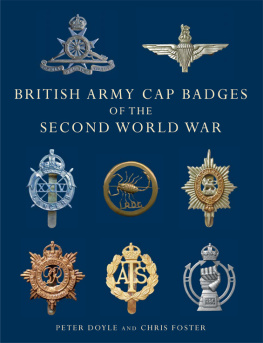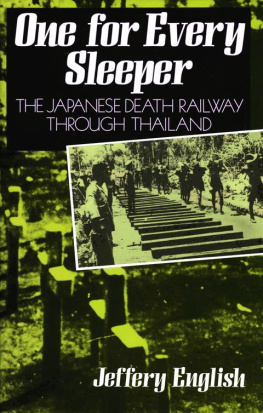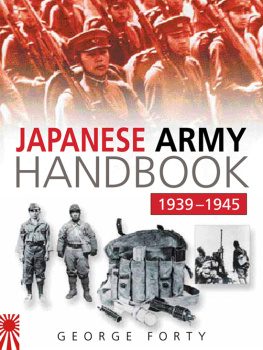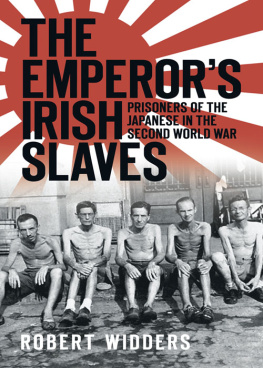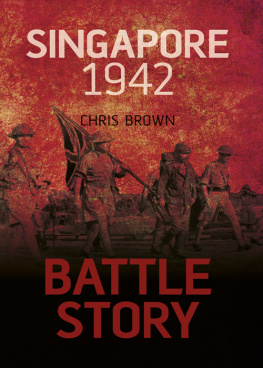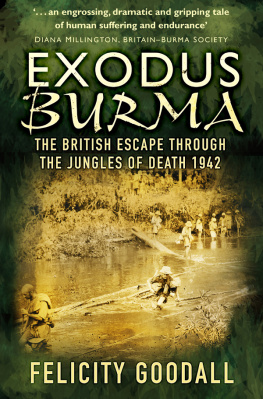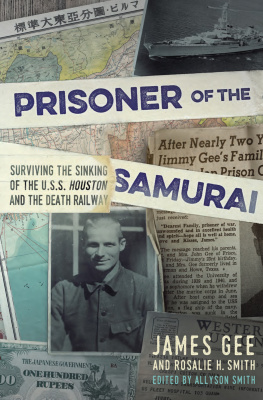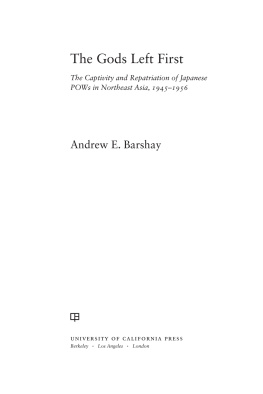For my Beloved wife Aileen,
for whom this memoir was originally written.

First published in Great Britain in 2012 by
PEN & SWORD MILITARY
An imprint of
Pen & Sword Books Ltd
47 Church Street
Barnsley
South Yorkshire
S70 2AS
Copyright Peter Jackson, 2012
9781783031245
The right of Peter Jackson to be identified as the author of this work has been asserted by him in accordance with the Copyright, Designs and Patents Act 1988.
A CIP catalogue record for this book is available from the British Library
All rights reserved. No part of this book may be reproduced or transmitted in any form or by any means, electronic or mechanical including photocopying, recording or by any information storage and retrieval system, without permission from the Publisher in writing.
Typeset by Concept, Huddersfield, West Yorkshire Printed and bound in England by CPI Group (UK) Ltd, Croydon, CRO 4YY
Pen & Sword Books Ltd incorporates the imprints of Pen & Sword Aviation,
Pen & Sword Family History, Pen & Sword Maritime, Pen & Sword Military,
Pen & Sword Discovery, Wharncliffe Local History, Wharncliffe True Crime,
Wharncliffe Transport, Pen & Sword Select, Pen & Sword Military Classics,
Leo Cooper, The Praetorian Press, Remember When, Seaforth Publishing and
Frontline Publishing.
For a complete list of Pen & Sword titles please contact
PEN & SWORD BOOKS LIMITED
47 Church Street, Barnsley, South Yorkshire, S70 2AS, England
E-mail: enquiries@pen-and-sword.co.uk
Website: www.pen-and-sword.co.uk
Foreword
This is an incredible story of one citizen soldier during the Second World War. Britain was battling for its survival and the young, recently married Peter Jackson was conscripted into the British Army. He spent his first year in training and in defending Britain against the potential German invasion. His war really starts when his regiment is posted to the Far East and he finds himself on Singapore Island, just before the final Japanese assault and ignominious surrender. Like all soldiers he has no idea what is happening beyond his immediate horizon. He finds himself a prisoner of the Japanese and luck and happening to have the right skills allows him to survive a year of captivity on the island before being sent north to work on the Death Railway in Thailand. Here cholera, malaria, dysentery, starvation rations, the deliberate brutality and casual neglect by Japanese guards leads to thousands of deaths.
Jackson finds himself in a cholera camp. The chance discoveries of a map and compass and an unguarded rice store, leads to an improbable escape with no certainty of where they are heading. Their aim is to travel through Burma towards China. Death on-the-run seems preferable to the inevitable death sentence facing them in camp. But while escaping they suffer hunger, tiredness, and sickness. All but one survives and they spend the monsoon sheltering in a limestone cave. Betrayed by the villagers the surviving men find themselves facing life sentences in the infamous Outram Road Jail on Singapore Island.
When Peter is ill with beriberi he is sent to Changi to die, but he lives thanks to the care he receives in the Changi Prison hospital. He becomes one of the living dead, whose death is faked, to keep him from being sent back to Outram Road and he lives and survives in Changi by his wits.
It is a story simply told where chance and happenstance determine Jacksons fate. Yet it is gripping in its simplicity because he and his comrades do the impossible, escaping from the Japanese, surviving the rigors of that escape and then even more improbably surviving recapture.
Peter Jackson, now in his nineties, wrote this for his second wife, Aileen, and we are lucky that he did so. If this was a novel it would be dismissed as being too implausible. Jackson lays no claim to leadership nor does he give deep insights into his personal suffering, but it still resonates through what he does not say. Although written in his old age, this is a young mans story of a war without heroes, one of chaos and muddle, horror and endurance, and most of all of surviving in the face of impossible odds. It is a book to read and ponder upon.
Christopher Pugsley
Department of War Studies
Royal Military Academy Sandhurst
Chapter 1
Childhood
There have been many books written about, and by, admirals, adjutants and athletes, by generals and Germans right through the alphabet to politicians and zealots, but there have been few books written by me. I am one of the millions of nobodies whom generals and admirals found to be expendable in wartime. They were able to move us hither and thither as though we were nothing more nor less than pawns in a game of chess. I was one of those men of whom the general said, We must sacrifice that platoon, or company or brigade, after they had made some stupid blunder.
I am one of the thousands to whom politicians speak, and about, when they want me to vote for them; one of those who sit back and let it all happen, yet are still able to think and act for ourselves and yet have no power to alter the course of history.
Who am I? Let me call myself a pawn in the game of life. My story starts the day I was born, 4 January 1919. My life span runs from the horse and cart era through the first motor cars to landing a man on the moon, to super computers.
I was one of those unlucky blighters who was used and regarded as dispensable in the Second World War. I was conscripted into the army soon after the war started; I was only twenty years old and had just married. After serving in Britain I was shipped off to India and then to Singapore. I arrived only a few weeks before the city fell to the Japanese. I then spent nearly four years as a prisoner of the Imperial Japanese government. I survived fortuitously and am now, at the time of writing, ninety-two. This is my story of those years.
I was born in London in Queen Charlottes Hospital. It appears that they didnt think much of me. They put drops of brandy in my feed to pep me up and I was thin and ugly. My mother said a nurse told her, ugly in the cradle but pretty at the table. Most of my early memories are of frugal living. My mother and father did their best to provide for me but life was a hard struggle for them. I know that at times they went without in order to feed me.
My father served in the 1914 1918 war in the Royal Artillery. His feet were a mess from frostbite. A gun carriage had run over his toes so, at times, it was difficult for him to walk. He had also been deafened by the sound of gunfire. It appears that none of this war service entitled him to a pension. Before the war he had spent time in the navy so he had scars on his back from where he was beaten. He was able to show me a windjammer and name every sail, spar and piece of rigging and equipment on it. None of this equipped him for civilian life. I remember him as a builders labourer with hard callused hands that were often cracked and sore. Although frequently unemployed he was somehow able to get a little money. For a while he worked in the rubber trade, but a crash in its price put him out of a job. Back then many children didnt know what their dads did. Their fathers came home at night, tired and dirty and not likely to say much about what they had done. He got the dole but it was a mere pittance. I can remember on more than one occasion my mother and father were given a Christmas food parcel so that we could have some sort of celebration.


